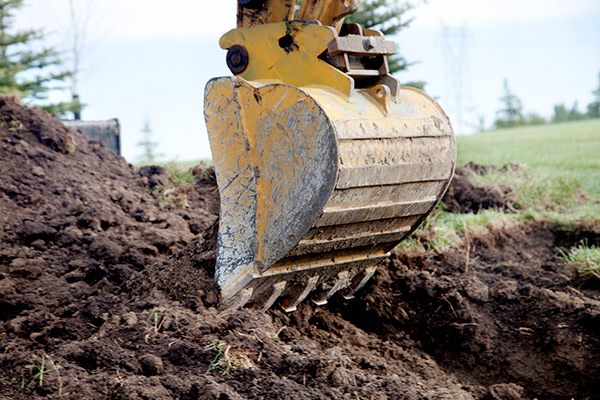Comprehensive Excavation Techniques: Grasping the Principles for Success
In the world of construction and civil engineering, the relevance of effective excavation strategies can not be overstated. The cautious preparation, precise implementation, and precise focus to information required in excavation jobs demand an extensive strategy that encompasses various basic elements. From first dirt analysis to the execution of safety actions and normal progress monitoring, grasping these core elements is necessary for achieving success in any excavation endeavor. The real proficiency exists not merely in recognizing these fundamentals yet in seamlessly incorporating them to navigate the complexities of excavation projects with skill.
Recognizing Excavation Project Planning

Successful excavation jobs are improved the structure of comprehensive and meticulous preparation. The preliminary phase of any kind of excavation task is the planning phase, where critical decisions are made that can considerably impact the result of the task. During this stage, it is necessary to gather all pertinent info regarding the site, including topographical surveys, dirt composition, and any type of prospective risks that might exist. Comprehending the job timeline, extent, and budget restraints is crucial for developing an extensive excavation plan that guarantees the job's success.
One trick element of excavation job planning is the advancement of a detailed timeline that lays out the sequence of milestones, activities, and target dates. This timeline functions as a roadmap for the job team, permitting them to track development and make essential changes to ensure the task remains on routine. Furthermore, a distinct budget that accounts for all expenditures, consisting of tools leasing, labor costs, and products, is essential for avoiding cost overruns and hold-ups. By very carefully thinking about all these factors throughout the preparation stage, excavation projects can be implemented effectively and successfully, causing successful end results.
Dirt Evaluation and Website Analysis
Performing detailed soil analysis and website assessment is a critical step in the preparation stage of any excavation job. Dirt evaluation includes identifying the make-up, framework, and buildings of the dirt at the excavation site. This information is vital for comprehending the soil's bearing capability, moisture material, and possibility for disintegration, which are key elements in establishing the excavation methods and devices required for the job.
Website evaluation surpasses soil analysis and encompasses a wider analysis of the total website problems. This analysis includes determining any type of prospective dangers, such as underground energies, ecological concerns, or unpredictable surface, that might influence the excavation procedure. By completely examining the site, project managers can develop effective excavation techniques that focus on safety and security, efficiency, and environmental management.
Using advanced technologies like ground-penetrating radar, soil tasting, and drone studies can enhance the accuracy and performance of soil analysis and site evaluation. Spending time and sources in these initial actions can ultimately conserve time and prevent pricey hold-ups or problems during the excavation process.
Devices Selection and Utilization
Reliable excavation jobs depend greatly on tactical equipment choice and usage to ensure optimum efficiency and productivity. Picking the best devices for the task is vital in making best use of effectiveness and reducing downtime. Factors such as the sort of soil, deepness of excavation, and job scope play a significant duty in identifying one of the most appropriate equipment for the job handy.

Along with selecting the proper tools, correct usage is crucial to task success. Operators must be trained to deal with the devices safely and effectively - lancaster excavation. Routine upkeep checks and prompt repair services assist stop break downs and ensure regular efficiency throughout the job
Security Actions and Regulations Conformity
In the world of excavation jobs, prioritizing precaution and conformity with guidelines is vital to making sure a safe and secure and lawfully audio operational setting. Precaution incorporate a variety of practices, consisting of carrying out thorough website assessments, carrying out correct signage and obstacles, and supplying sufficient safety and security training for all workers associated with the excavation procedure. Adherence to guidelines, such as OSHA needs in the USA, ensures that the excavation job meets the essential requirements to safeguard workers, spectators, and the surrounding environment.

Surveillance Development and Adjusting Approaches
Just how can forecast managers properly track the improvement of excavation jobs and adapt their strategies accordingly to maximize results? Surveillance development is necessary for making sure that excavation projects remain on track and meet due dates. Project supervisors can utilize numerous tools and methods to track development, such as daily progression reports, normal website assessments, and advanced monitoring modern technologies like drones and GPS tracking systems. By continually checking the job's development, managers can recognize any type of prospective hold-ups or problems early on and take aggressive measures to resolve them.

Conclusion
In conclusion, understanding the basics of detailed excavation strategies is essential for the success of any kind of job. By understanding task preparation, examining dirt and site problems, choosing proper equipment, adhering to security regulations, and checking progress, job managers can make This Site sure a reliable and smooth excavation procedure. Applying these approaches will certainly lead to effective outcomes and lessen potential threats or troubles during the excavation job.
The first stage of any kind of excavation job is the preparation phase, where important choices are made that can significantly affect the end result of the task. Understanding the task timeline, budget plan, and range restrictions is important for creating a detailed excavation plan that ensures the project's success.
Exactly how can forecast managers properly track the improvement of excavation projects and adapt their methods as necessary to optimize outcomes? By carefully checking progression and being prepared to adjust strategies, job managers can enhance the overall success of excavation projects.
By comprehending job planning, examining dirt and site conditions, selecting ideal devices, conforming with security guidelines, and checking progress, project supervisors you can check here can make certain a reliable and smooth excavation process.